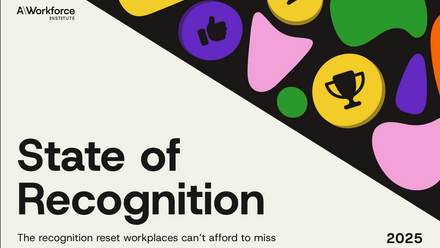Culture matters: top considerations when communicating reward messages to a global audience

When thinking about reward and recognition on a global scale, there are a number of simple principles to consider.
Put recognition into the flow of work
Think about the tools you want to use, including the type of technology, mobile solutions and offline tools. By putting recognition software into apps and sites your employees are already using, they don’t have to leave the flow of work to give and receive recognition.
The list of plug-ins and application programming interfaces (API’s) is an ever-growing one, but keeping recognition within existing channels for global organisations will help to drive engagement with the reward and recognition programme. Integrations with collaborative platforms such as SharePoint, will also make it easy to broadcast great work immediately around the whole organisation, from London to Lagos.
Match awards to accomplishments, cultures and geographies
Beware of the reward and recognition programme with a one-size-fits-all strategy, such as those that provide gift card or cash-only rewards, as not all employees have the same wants and needs. Give your people desirable and true-to-value rewards which fit their cultural expectations and achievements. Don’t ruin the end-user experience by over-priced goods, undervalued recognition moments or culturally unsuitable gifts. And allow for local flexibility, for example, if a recognition initiative is key in one country but not another, allow for this.
Create purposeful, meaningful, personal experiences
Every recognition moment should be authentic and tailored towards the individual to make it as impactful as possible. The personal ‘experience’ of the recipient receiving the reward can be just as important as the award itself, so encourage leaders and peers to create memorable recognition moments for recipients. This could involve a presentation in front of peers and managers (over video conference, if necessary). Of course, ensure the act of delivering recognition fits with the cultural expectations of that country. For instance, workers from India generally like to be highly praised and celebrated in front of their co-workers for all manner of achievements. In America, however, staff are most likely to value performance-based recognition.
Be clear about the ‘why’ behind the reward programme
Leverage the ‘what, why, and how’ behind any reward and recognition programme so that it’s clear how it fits with the company’s purpose and values. And think about creating a reward and recognition programme with a powerful brand that effectively reflects your organisation’s purpose, helping to excite and inspire employees. Not only should the language used reflect your company’s personality and culture, but it must also be in the local language where necessary.
Keep communicating!
Ongoing communication about the reward and recognition programme is vital. A programme can’t be launched and then left to run its course. There must be constant reminders about your programme so all employees are aware of the tools available, understand the importance of giving recognition, and know how to do it effectively. Again, local language and cultural considerations must be taken into account.
Train leaders to appreciate
Leadership training should teach leaders why recognition and reward are so important, and how to give recognition in a meaningful way. Encourage leaders to use storytelling to reinforce your organisation’s purpose and align employees’ work to that purpose. If leaders don’t understand why a reward programme is important and how to make it a success, the programme will quickly fail.
Think globally!
Reward and recognition programmes have never been so important. In fact, according to our recent pulse survey, in organisations where no formal recognition is present, employees are 22.7% less likely to feel supported by the organisation and are twice as fearful of COVID-19. However, ensuring reward and recognition messages are communicated effectively on a global scale, can prove the biggest challenge. The key is to think globally while never forgetting local and cultural nuances.
The author is Dan Phipps, culture and engagement strategist, O.C. Tanner Europe.
This article is provided by O.C. Tanner Europe.
Supplied by REBA Associate Member, O. C. Tanner
Giving teams the integrated tools they need when, where and how they need them.







